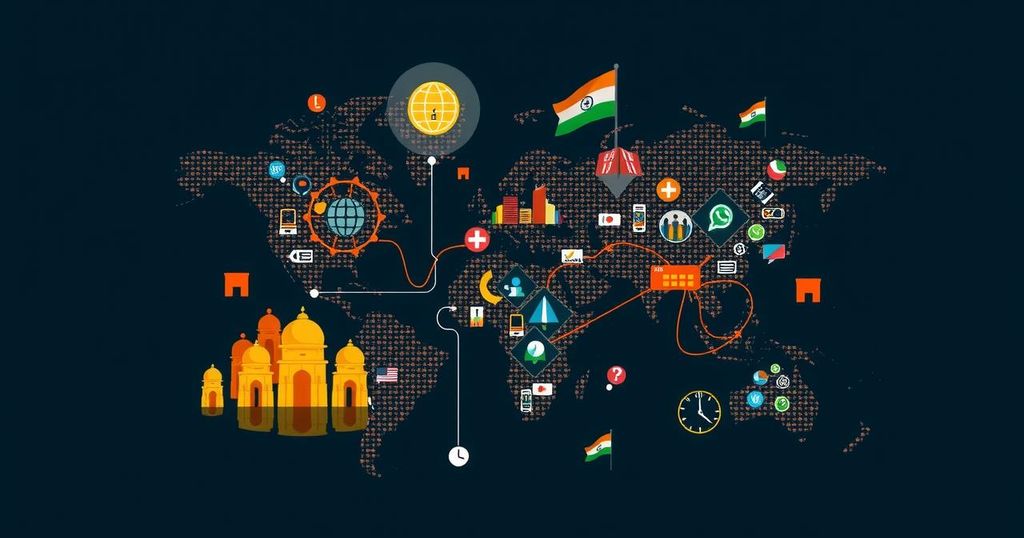India’s Human-Centric Foreign Policy: Navigating Global Challenges with Pragmatism
Prime Minister Modi’s foreign policy underscores India’s rise as a global power through a human-centric approach, fostering consensus and enhancing regional relations. By addressing international crises, Modi has transformed India’s diplomatic role while navigating challenges with China and Pakistan. India advocates for greater inclusivity in global governance, underscoring its commitment to environmental and economic development, proposing a pragmatic, values-based future for international relations.
Prime Minister Narendra Modi’s foreign policy exemplifies a dynamic and strategic approach that is centered around India’s emergence as a significant global actor. This human-centric approach prioritizes regional relationships and the collective well-being of the international community, enabling India to navigate the complexities of a rapidly changing geopolitical landscape. Modi’s tenacity has transitioned India from a passive observer to an influential leader, promoting consensus-building while addressing pressing global challenges. Under Modi, India has strengthened its global standing, playing a pivotal role during crises such as the COVID-19 pandemic and natural disasters through its expansive aid programs. Although India is not a permanent member of the United Nations Security Council, it has effectively utilized plurilateral forums to address geopolitical disparities, exemplified by its nuanced stance on conflicts like the Israel-Palestine situation. Modi’s diplomatic vision encourages dialogue over warfare, reinforcing India’s position during events such as the G20 summit, where India championed solutions based on cooperation. The Modi administration grapples with enduring tensions with China and Pakistan, employing a dual strategy of assertive military preparedness while pursuing diplomatic engagement. Notably, the bilateral talks between Modi and Xi Jinping at recent summits suggest potential pathways to improved relations amid historical border conflicts. In South Asia, India’s ‘Neighbourhood First’ policy promotes regional prosperity, while effective management of aid programs remains essential for enhanced outcomes. India’s commitment to addressing global challenges is evident in its proactive stance on environmental issues and clean energy, having met its Paris Agreement targets ahead of schedule. As it seeks to capitalize on the global shift away from reliance on China, India’s ability to participate in trade frameworks will be critical to its economic ambitions. The rise of internal and external challenges, such as separatist movements, necessitates vigilance and strategic alliances to ensure national security. In conclusion, India is assertively positioning itself within the global arena, advocating for a rules-based international order that reflects contemporary realities. As a key player in international relations, India is poised to influence global policy, steering toward a future that aligns with inclusive and humanitarian values.
The article discusses Prime Minister Narendra Modi’s foreign policy, which is characterized by a human-centric approach designed to enhance India’s role as a prominent global player. It examines themes of consensus-building and regional relationships while addressing India’s evolving capacity to influence international discourse amid various geopolitical challenges, including its relationships with neighboring countries and global powers. The text highlights India’s significant contributions during crises and its strategic response to territorial disputes, particularly with China and Pakistan.
In sum, Prime Minister Modi’s foreign policy showcases India’s growth as a prominent global player, emphasizing the importance of dialogue in resolving international disputes. By balancing military readiness with diplomatic initiatives, India adeptly navigates its relationships with both regional adversaries and global partners. As it confronts both internal and external challenges, India’s vision of an inclusive, pragmatic, and values-driven global order positions it for a leading role in 21st-century geopolitics.
Original Source: www.hindustantimes.com




Post Comment